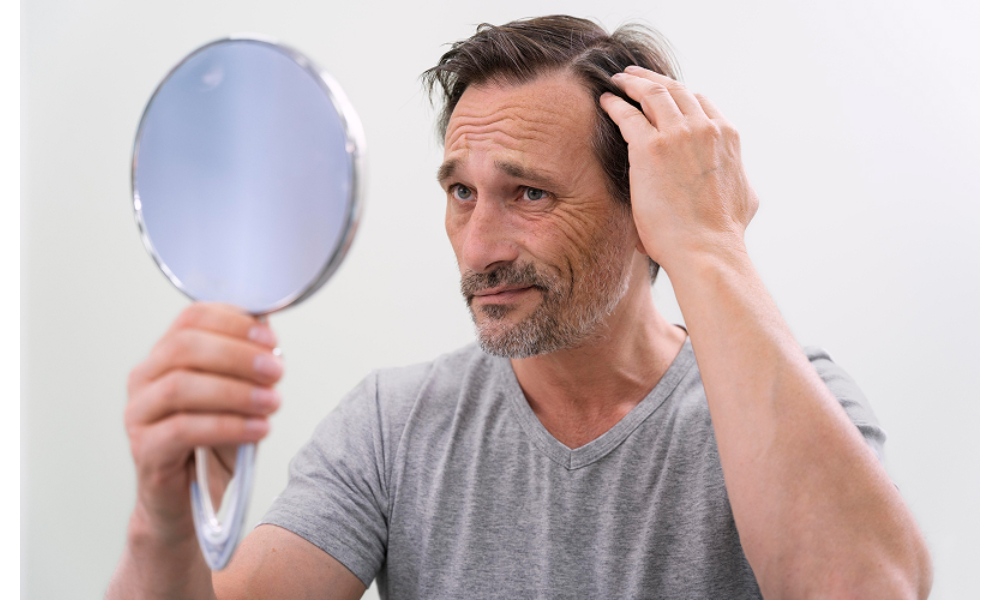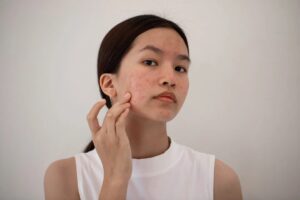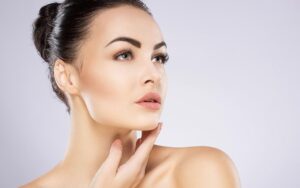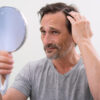Hair loss can be frustrating for any man, but when it comes with an oily scalp, the combination feels like an extra bad deal. The reality is that oily scalp and hair loss in men can be linked in several ways. While it is normal for the scalp to produce some oil, excess sebum can make the hair appear limp, cause build-up, and in some cases contribute to shedding. The question is, how are these two conditions connected and what can be done about it?
Understanding the Role of Sebum
The scalp produces sebum through sebaceous glands. Sebum keeps the skin moisturised, but when overproduced, it can mix with dirt, sweat, and dead skin cells, leading to blocked follicles. Over time, these blockages may weaken hair growth. This is one of the key ways oily scalp and hair loss in men become connected.
Studies have shown that men with androgenetic alopecia often present with increased sebum production. While sebum itself does not cause baldness, it creates an environment that can worsen existing hair thinning by making the scalp less hospitable to healthy regrowth.
How Hormones Influence Both Oil and Hair
Testosterone and its derivative, dihydrotestosterone (DHT), influence hair follicles and oil production. In men, high sensitivity to DHT can shrink hair follicles over time, leading to thinning hair. At the same time, hormonal activity can stimulate sebaceous glands, making oily scalp and hair loss in men appear together.
Balancing hormones is not a quick fix, but understanding the link helps in choosing treatments that address both oil control and follicle health.
Scalp Hygiene and Hair Loss Prevention
Regular washing can help control oil, but overwashing may strip too much natural moisture, prompting the scalp to produce more sebum. The best approach is cleansing often enough to remove build-up without triggering excess oil rebound.
Choosing a shampoo with mild cleansing agents and anti-inflammatory ingredients can help. For men with scalp dryness in certain patches, a targeted dry scalp treatment may be needed alongside oil control measures. This ensures that while oil is reduced, the scalp does not swing to the opposite extreme and become flaky.
Diet, Lifestyle, and Their Effects
Diet plays a role in skin and hair health. Diets high in processed fats and sugars can influence oil production. Including more fresh vegetables, lean proteins, and omega-3 fatty acids supports scalp balance. Stress is another factor. Chronic stress can worsen sebum output and accelerate shedding.
Lifestyle adjustments like better sleep, regular exercise, and hydration can help the scalp environment remain stable, reducing both oiliness and hair loss risk.
Treatment Options Available
There are multiple approaches to addressing both conditions:
- Topical treatments: Medicated shampoos containing zinc pyrithione, salicylic acid, or ketoconazole can manage sebum while supporting scalp health.
- Oral medications: For men with genetic hair loss, finasteride may slow follicle shrinkage, while also indirectly helping the scalp environment.
- In-clinic procedures: Low-level laser therapy and platelet-rich plasma injections are designed to stimulate hair growth.
- Lifestyle-based interventions: Consistent cleansing routines and balanced diets provide a foundation for any treatment plan.
When using treatments, it is important to monitor for scalp irritation. A tailored plan that includes mild cleansing and, when necessary, a dry scalp treatment for specific areas will maintain overall balance.
Advances in Hair and Scalp Care
Recent innovations have focused on products that combine oil control with follicle support. Formulas with caffeine, niacinamide, and plant-based antioxidants can both manage sebum and improve scalp circulation. Research into microbiome-friendly scalp products is also gaining attention, with early findings suggesting that a balanced scalp microbiome can improve both oil regulation and hair density.
Laser therapy devices for home use have also become more accessible. While these are not cures, they may be helpful as part of a broader routine, especially for men experiencing early-stage hair loss.
The Bottom Line on Oily Scalp and Hair Loss
Oily scalp and hair loss in men are often linked by hormonal activity, scalp environment, and genetics. While you cannot change your genes, you can improve scalp conditions to make them more favourable for hair growth. This means addressing excess oil without neglecting scalp hydration, supporting overall health, and choosing treatments suited to your specific stage of hair loss.
With the right balance of scalp care, targeted treatments, and lifestyle adjustments, it is possible to slow hair thinning and maintain a healthier scalp environment. Contact Bee Choo Origin to explore personalised solutions that address both scalp oil control and hair loss concerns.










